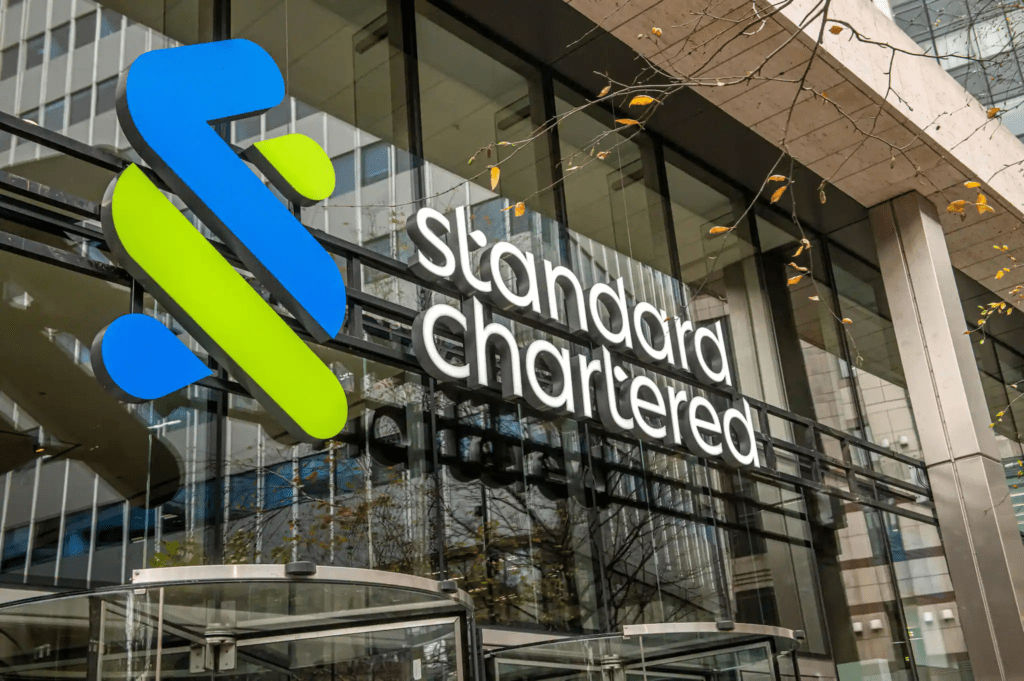Standard Chartered, an international banking group, has updated one of its key value chain emissions reduction goals. The bank has replaced its prior intensity-based oil and gas sector financed emissions reduction target with a new commitment to reduce absolute emissions from its activities in the sector. Standard Chartered has set a goal to reduce emissions associated with its finance activities by 2050. In 2021, the bank announced interim goals for several of the most carbon-intensive sectors that it finances, including an absolute reduction target for thermal coal mining and intensity-based targets for the oil and gas and power sectors.
The oil and gas sector is Standard Chartered’s largest single emissions source, representing more than 30% of its 2020 baseline financed emissions. Under the new target, the bank is aiming to reduce absolute emissions by 29% by 2030, or by 3.8 metric tons of CO2e. The prior target called for a 30% reduction in revenue-based carbon intensity for the sector.
In its statement announcing the updated goal, Standard Chartered also clarified its position on the role of natural gas in the energy transition. The bank highlighted the importance of supporting its oil and gas clients through the transition, and the need to balance energy sustainability, security and resilience considerations. The bank said that while it will “prioritise renewable or green energy sources wherever practical”, in settings that do not allow for a direct green transition, it will support lower emissions intensity alternatives, with natural gas, including LNG, playing a role in the reduction of overall emissions.
